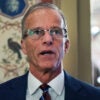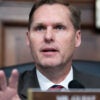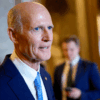Revealing just how difficult it is for politicians to learn from even recent history, the Secretary of Housing and Urban Development (HUD), Julian Castro, is campaigning for an expansive role for the federal government in support of increased homeownership and various community development initiatives—the exact same policies that played such a large role in the housing bubble and financial collapse in 2008.
In a speech last month, Castro made this comment:
Since 2009, the Obama Administration has enacted historic safeguards to prevent our nation from revisiting the reckless lending environment we saw last decade. HUD has also worked with groups like NCRC [National Community Reinvestment Coalition] to offer housing counseling to millions of families to prepare for homeownership.
He continued:
[The Federal Housing Authority’s (FHA)] responsibility is to ensure that everyone who is ready and willing can buy that home…. As many of you know, FHA has long been a beacon of hope for underserved borrowers.
While these types of platitudes of “affordable housing” and “ownership societies” may make for great political rhetoric, they cannot overcome actual history, which suggests that the federal government has played a central role in the deterioration of mortgage loan underwriting standards in the housing finance system, as well as in the increase of overall debt.
The deterioration of lending standards is so extreme that, in the case of the Federal Housing Authority, roughly 95 percent of single-family mortgage loans in the program over the past 25 years would not have been approved in the early years of the insurance guarantee program.
Castro is correct that Americans, including younger individuals, generally do still plan to own a home. This is supported by polling data from the past couple of years. But the transition to homeownership needs to be done in a financially responsible way. That has been a difficult path for many Americans to navigate given the state of the economy and labor market over the past several years.
No amount of counseling or maneuvering by the federal government to make mortgages “affordable” and “accessible” will create meaningful or sustainable homeownership opportunities when people continue to face uncertainty in employment and income—and, for many younger households, high levels of non-mortgage-related debt. In the meantime, there is absolutely nothing wrong with renting instead of buying, and federal policies should not bias the market toward either option.
The decision to purchase a home—which means a mortgage for most Americans—must be done in a responsible manner and free from government interference.






























